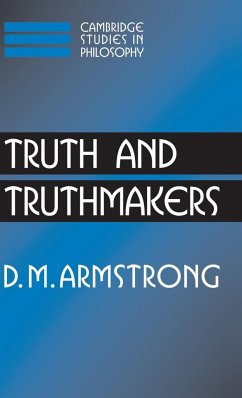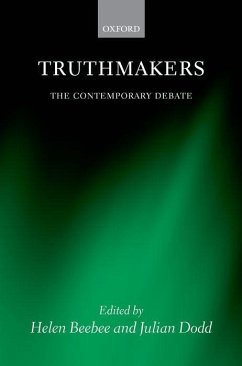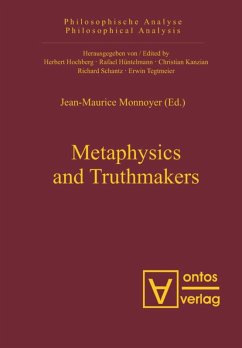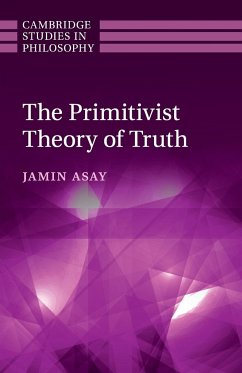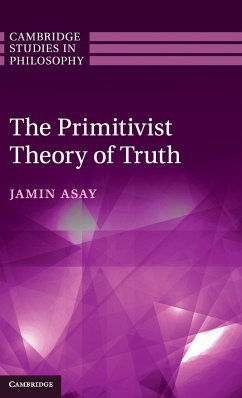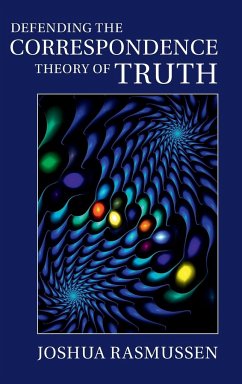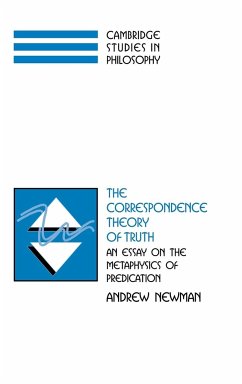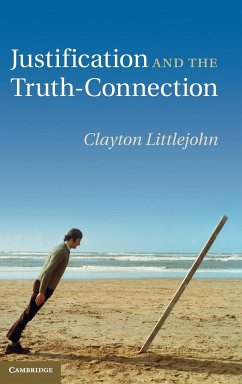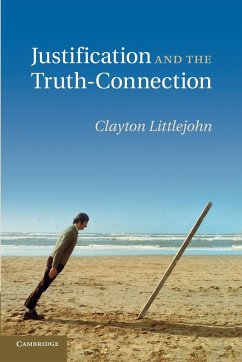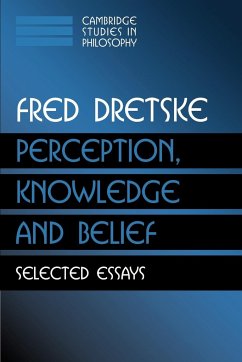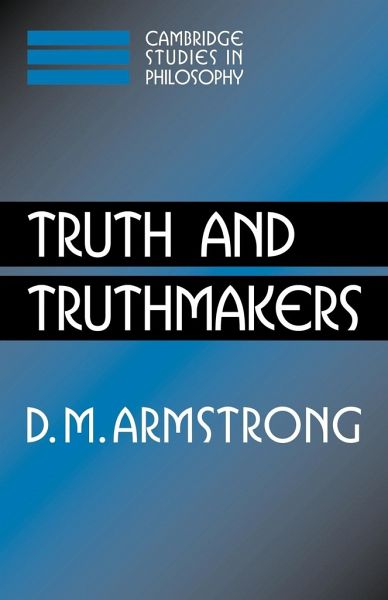
Truth and Truthmakers
Versandkostenfrei!
Versandfertig in 1-2 Wochen
27,99 €
inkl. MwSt.
Weitere Ausgaben:

PAYBACK Punkte
14 °P sammeln!
Short description/annotationThis book makes a compelling case for truthmaking and its importance in philosophy.Main descriptionTruths are determined not by what we believe, but by the way the world is. Or so realists about truth believe. Philosophers call such theories correspondence theories of truth. Truthmaking theory, which now has many adherents among contemporary philosophers, is the most recent development of a realist theory of truth, and in this book D. M. Armstrong offers the first full-length study of this theory. He examines its applications to different sorts of truth, including c...
Short description/annotation
This book makes a compelling case for truthmaking and its importance in philosophy.
Main description
Truths are determined not by what we believe, but by the way the world is. Or so realists about truth believe. Philosophers call such theories correspondence theories of truth. Truthmaking theory, which now has many adherents among contemporary philosophers, is the most recent development of a realist theory of truth, and in this book D. M. Armstrong offers the first full-length study of this theory. He examines its applications to different sorts of truth, including contingent truths, modal truths, truths about the past and the future, and mathematical truths. In a clear, even-handed and non-technical discussion he makes a compelling case for truthmaking and its importance in philosophy. His book marks a significant contribution to the debate and will be of interest to a wide range of readers working in analytical philosophy.
Table of contents:
1. An introduction to truthmakers; 2. The general theory of truthmaking; 3. Epistemology and methodology; 4. Properties, relations and states of affairs; 5. Negative truths; 6. General truths; 7. Truthmakers for modal truths: Part 1, possibility; 8. Truthmakers for modal truths: Part 2, necessity; 9. Numbers and classes; 10. Causes, laws and dispositions; 11. Time.
This book makes a compelling case for truthmaking and its importance in philosophy.
Main description
Truths are determined not by what we believe, but by the way the world is. Or so realists about truth believe. Philosophers call such theories correspondence theories of truth. Truthmaking theory, which now has many adherents among contemporary philosophers, is the most recent development of a realist theory of truth, and in this book D. M. Armstrong offers the first full-length study of this theory. He examines its applications to different sorts of truth, including contingent truths, modal truths, truths about the past and the future, and mathematical truths. In a clear, even-handed and non-technical discussion he makes a compelling case for truthmaking and its importance in philosophy. His book marks a significant contribution to the debate and will be of interest to a wide range of readers working in analytical philosophy.
Table of contents:
1. An introduction to truthmakers; 2. The general theory of truthmaking; 3. Epistemology and methodology; 4. Properties, relations and states of affairs; 5. Negative truths; 6. General truths; 7. Truthmakers for modal truths: Part 1, possibility; 8. Truthmakers for modal truths: Part 2, necessity; 9. Numbers and classes; 10. Causes, laws and dispositions; 11. Time.





